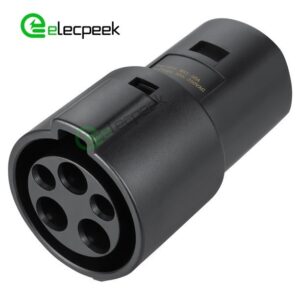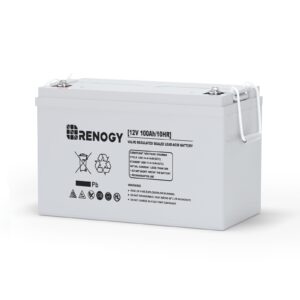Can you bring batteries on a plane? The simple answer is yes, you can. But before you load your bags with batteries, let’s dive into the details to ensure a seamless travel experience. Whether you’re a frequent flyer or planning an exciting vacation, knowing the rules and regulations regarding batteries is crucial to avoid any hassles at the airport security checkpoint. So, let’s explore the guidelines and restrictions surrounding batteries on a plane, ensuring you have all the information you need for a smooth journey.
Can You Bring Batteries on a Plane?
Whether you’re traveling for business or pleasure, it’s important to know what items are allowed on a plane and what items are not. One common question that many travelers have is whether or not they can bring batteries on a plane. In this article, we will explore the rules and regulations surrounding batteries and air travel to help you navigate this aspect of your journey with ease and confidence.
What Are Batteries?
Before we dive into the specifics of bringing batteries on a plane, let’s first understand what batteries are. Batteries are portable devices that store chemical energy and convert it into electrical energy. They are commonly used to power a wide range of electronic devices, such as smartphones, laptops, cameras, and more.
Types of Batteries
Not all batteries are created equal, and it’s important to be aware of the different types when considering whether or not you can bring them on a plane. Here are some of the most common types of batteries:
- Alkaline Batteries: These are the standard batteries you find in most household items like remote controls and flashlights.
- Lithium-ion Batteries: These are rechargeable batteries commonly used in smartphones, laptops, and other portable electronic devices.
- Lithium Metal Batteries: These non-rechargeable batteries are often used in watches, cameras, and other small electronic devices.
- Nickel-Cadmium Batteries: Although less common nowadays, these rechargeable batteries were popular in older electronic devices.
- Nickel-Metal Hydride Batteries: Another type of rechargeable battery commonly used in devices like digital cameras and handheld game consoles.
It’s important to note that lithium-ion and lithium metal batteries are of particular importance when it comes to air travel regulations.
Transporting Batteries in Carry-On vs. Checked Bags
The transportation of batteries is regulated by the Federal Aviation Administration (FAA) and other relevant agencies to ensure the safety of passengers and crew. The rules for transporting batteries vary depending on whether you want to carry them in your carry-on baggage or check them in your luggage.
Carry-On Bags
Carrying batteries in your carry-on baggage is generally allowed, with some restrictions to ensure safety. This is recommended because the cabin is pressurized, which helps mitigate any potential risks associated with battery malfunctions.
Checked Bags
While most types of batteries are allowed in checked bags, there are some restrictions, especially when it comes to lithium-ion and lithium metal batteries. These batteries have the potential to pose a fire risk if not handled properly, which is why there are stricter guidelines for their transportation.
Rules for Batteries in Carry-On Bags
When bringing batteries in your carry-on bag, it’s important to follow these guidelines:
- Keep batteries in the original packaging or place tape over the battery contacts to prevent short-circuiting.
- If you have loose batteries, store them in a separate plastic bag to prevent any accidental contact with metal objects.
- Avoid packing batteries loosely with other metal objects, like keys or coins, as this can cause a short circuit.
- Consider placing your electronic devices with batteries in a separate bin during the security screening process to facilitate the screening process.
- Ensure that the batteries are easily accessible for inspection by security personnel, if required.
- If you have spare lithium-ion or lithium metal batteries that exceed the airline’s limits, consult the airline for specific instructions on how to transport them.
It’s important to check with your airline for any additional requirements or restrictions on battery transportation, as individual airlines may have specific rules in place.
Rules for Batteries in Checked Bags
When it comes to checking batteries in your luggage, here are some important guidelines to follow:
- Avoid packing spare lithium-ion or lithium metal batteries in your checked bags. These should always be kept in your carry-on to minimize the risk of fire in the cargo hold.
- If you have devices with non-removable lithium-ion or lithium metal batteries, ensure they are switched off and protected from accidental activation.
- Consider placing your electronic devices with batteries in a protective case or wrapping them in clothing to provide extra cushioning and minimize the risk of damage during transit.
- Remove any batteries from devices that you plan to pack in your checked bags and carry them separately in your carry-on.
- Always check with your airline for specific instructions or restrictions on battery transportation in checked bags.
Additional Considerations
While you can generally bring batteries on a plane following the guidelines mentioned above, it’s important to keep a few extra considerations in mind:
- Some countries may have specific regulations regarding the transport of batteries. Familiarize yourself with the rules of your destination country to ensure compliance.
- If you’re traveling internationally, be aware that the transportation rules may differ between airlines and countries. It’s always a good idea to check with your airline and relevant authorities for the most up-to-date information.
- In cases where you need to transport larger batteries or a higher quantity of batteries for specific purposes, such as medical equipment, it’s advisable to contact your airline in advance and provide any necessary documentation or certifications.
In conclusion, you can bring batteries on a plane, both in your carry-on and checked bags, with certain restrictions and considerations. Following the guidelines provided by the FAA and individual airlines will help ensure a smooth and safe journey. Remember to keep batteries properly packaged, avoid loose batteries coming into contact with metal objects, and consult your airline for any specific instructions or limitations. By adhering to these guidelines, you can travel with your essential electronic devices powered up and ready to go!
Frequently Asked Questions
Can you bring batteries on a plane?
Yes, you can bring batteries on a plane, but there are certain rules and restrictions that you need to be aware of.
What types of batteries can be brought on a plane?
You are allowed to bring common types of batteries such as AA, AAA, C, and D batteries, as well as rechargeable batteries like lithium-ion and nickel-metal hydride batteries.
Are there any restrictions on the size or quantity of batteries you can bring?
According to the Federal Aviation Administration (FAA), spare batteries must be in carry-on baggage only. In general, there are no specific restrictions on the size or quantity of batteries you can bring as long as they are for personal use. However, if you plan to bring a large number of batteries, especially those over 100 watt hours (Wh), it’s recommended to check with your airline beforehand.
How should batteries be packed for air travel?
Batteries should be properly packed to prevent short circuits and damage. It is recommended to keep batteries in their original packaging or place insulating tape over the battery terminals to prevent contact with other metal objects. If you are carrying loose batteries, it is advisable to cover the terminals with tape individually or place them in separate plastic bags.
Are there any restrictions on lithium-ion batteries?
Yes, there are some restrictions on lithium-ion batteries due to their potential fire risk. Spare lithium-ion batteries with a capacity between 101 and 160 watt hours (Wh) require airline approval. Batteries with a capacity exceeding 160 Wh are not allowed on passenger aircrafts. It is important to check with your airline for specific guidelines and restrictions regarding lithium-ion batteries.
Can you check batteries in your checked luggage?
It is strongly recommended not to pack batteries in checked luggage, especially lithium-ion batteries. The risk of short circuits and potential fire hazards makes it safer to carry them in your carry-on baggage where any potential issues can be quickly addressed.
Final Thoughts
In conclusion, it is generally allowed to bring batteries on a plane, but there are certain regulations that need to be followed. For lithium-ion batteries, they must be carried in carry-on baggage and not checked in. It is also important to ensure that the batteries are properly installed in electronic devices or have their terminals protected to prevent short circuits. It is advised to check with the airline regarding any specific restrictions or requirements they may have. So, when it comes to the question “can u bring batteries on a plane,” the answer is yes, as long as the necessary precautions are taken.


